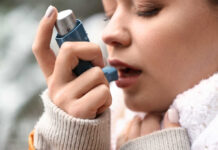
A new public health issue is emerging, threatening the well-being of countless Americans: touch starvation.
Story Highlights
- Touch starvation is causing significant psychological and physiological harm.
- The COVID-19 pandemic greatly exacerbated this issue.
- Healthcare professionals are seeking solutions to mitigate its effects.
- Experts emphasize the importance of physical contact for overall health.
The Rise of Touch Starvation
Touch starvation, also known as touch deprivation, is a condition resulting from insufficient physical contact. This issue has been recognized for decades, particularly among specific populations such as infants in orphanages and the elderly in care homes. However, the COVID-19 pandemic has substantially increased its prevalence by enforcing social distancing and isolation, limiting opportunities for physical contact and subsequently impacting mental and physical health.
Watch; What Touch Starvation Does To Your Mind
Health Impacts and Expert Insights
The health effects of touch deprivation are profound. Individuals experiencing this condition report increased stress, anxiety, depression, and sleep disturbances. Physiologically, the lack of touch can suppress immune function and increase the risk of chronic diseases like hypertension and diabetes. Dr. Asim Shah from Baylor College of Medicine compared touch starvation to food deprivation, highlighting its significant impact on both the psyche and body.
Experts suggest that physical touch activates brain regions linked to emotional and social behaviors, making it a crucial element of overall health. During the pandemic, many have turned to virtual socialization, pet interaction, and self-soothing techniques as temporary coping mechanisms, but these substitutes cannot fully replace the benefits of human touch.
Addressing the Crisis
Healthcare professionals are advocating for interventions to address touch starvation. Some institutions are piloting programs to safely increase physical contact for vulnerable populations. Public health authorities are urged to develop guidelines that balance infection control with the psychosocial well-being needs of the population. The recognition of touch starvation as a legitimate health concern is growing, with ongoing research and public discourse highlighting its importance.
As awareness increases, there is a call for integrating touch-based therapies and safe contact protocols in healthcare and eldercare settings. The challenge lies in balancing the need for physical contact with the risk of infectious diseases, particularly in a post-pandemic world. Addressing touch starvation is not only a matter of improving individual health but also a broader societal concern, impacting healthcare costs and mental health services demand.
Sources:
Texas Medical Center
WebMD
Medical News Today
Peer-reviewed article


















